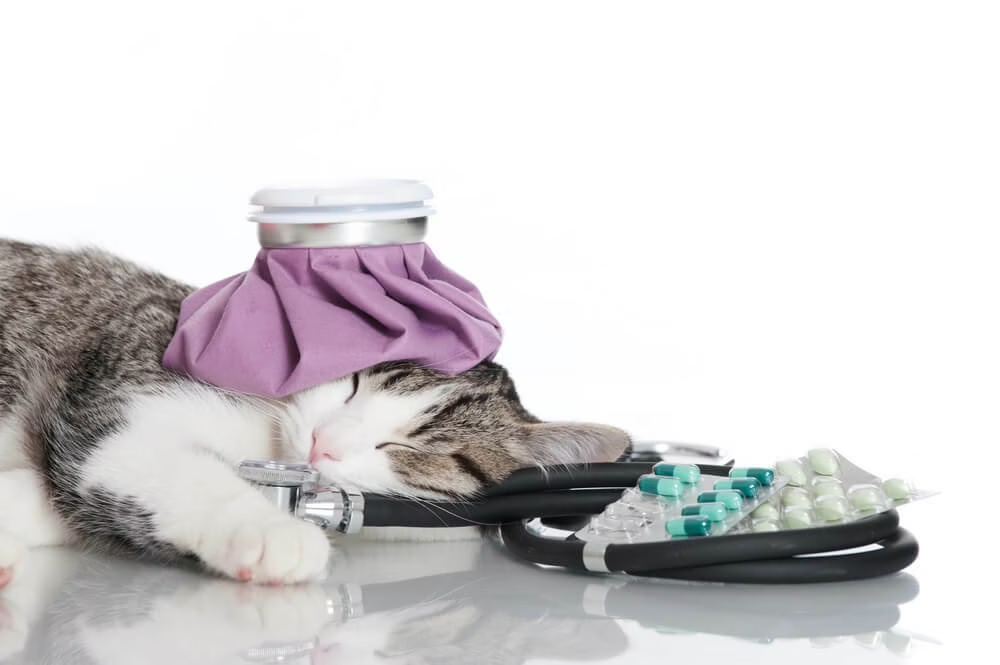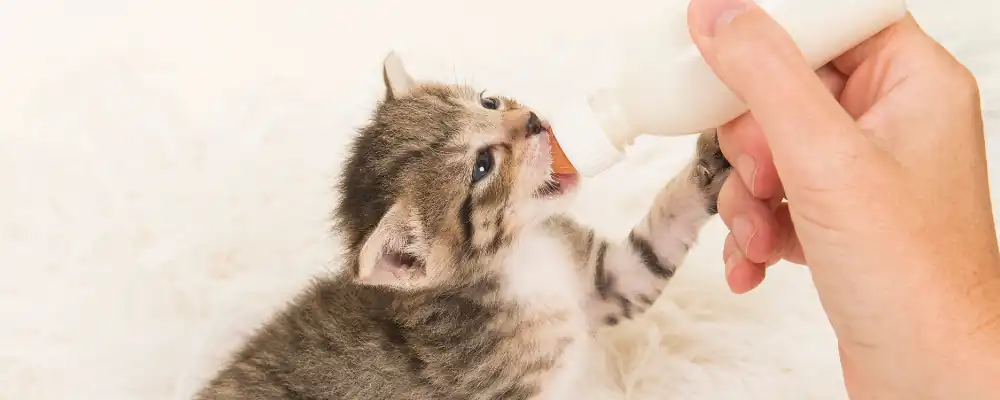6 Signs of Immunity Decline in Cats, Has Your Cat Been Involved?

Your cat’s immune system is an important defense against bacteria, viruses and parasites.
If your cat’s immune system is compromised, your cat will be susceptible to illness, but how do you know when your cat’s immune system is compromised? Here are 6 signs to look out for
(A) Drowsiness: Your cat sleeps more, but is not in good spirits.
Cats love to sleep, and on average, they sleep 14 hours a day.
However, if your cat sleeps longer than usual and wakes up in poor spirits, you should pay attention.
It may mean that his immunity is going downhill.
(B) Loss of appetite: Loss of interest in favorite foods
Loss of appetite is usually related to other health problems, such as gastrointestinal problems or infections.
If your cat starts to lose interest in her favorite foods, or even stops eating them altogether, it could be a sign of a weakened immune system.
(c) Repeated illness: Colds and flu keep finding their way in
If your cat keeps getting sick and going to the doctor, it may mean that her immune system is not able to fight off germs effectively.
(D) Abnormal bowel movements: Problems with urination or defecation.
Frequent diarrhea, constipation or discoloration of urine should be noted.
(E) Weight abnormality: excessive weight loss over a short period of time.
If there is no change in your cat’s lifestyle, but its weight decreases significantly within a short period of time, this is one of the signs of a decline in immunity.
(F) Abnormal hair loss: thinning hair or poor skin condition
It is normal for cats to lose hair, but if the amount of hair loss suddenly increases.
However, if there is a sudden surge in hair loss or localized hair loss, this may be a sign of immune disorders.
3 Causes of Immunity Decline in Cats
(i) Poor Nutrition
Balanced nutrition is the foundation of good health.
If your cat is a picky eater or has an uneven diet, it may not have enough nutrients, which may affect the functioning of the immune system.
(ii) Stress
Cats that have been in a high-pressure environment for a long period of time may experience a decline in their immune system due to anxiety and stress.
Whether it’s a move, a new member joining the family, or a change in the living environment, it can cause stress for your cat.
(iii) Poor hygiene
Dirty living spaces can increase your cat’s exposure to pathogens and allergens.
This places an extra burden on the immune system.
4 Simple and Effective Ways to Enhance Your Cat’s Immune System

(1) Clean teeth to minimize bacterial growth
Oral health is not only related to your cat’s teeth, but also to your entire body.
According to the Cornell University Feline Health Center, most adult cats have oral problems such as gingivitis or periodontal disease.
When plaque accumulates over time, it not only causes gingivitis and periodontitis, but can also lead to other oral infections.
In addition, oral bacteria may spread with the bloodstream to other organs in the body, damaging the kidneys and heart function.
Keeping your cat’s mouth hygienic and brushing regularly can prevent plaque buildup and infection.
Specialized cat toothbrushes and toothpastes can be used to brush your cat’s teeth, effectively reducing the risk of bacterial growth.
(2) Regular checkups and vaccinations, prevention is better than cure.
Annual checkups are an important means of detecting potential health problems in your cat.
Through regular checkups, factors that may be affecting your cat’s immunity can be detected in time for early intervention and treatment.
Regular vaccinations are also an effective way to protect your cat from serious diseases.
In particular, cats with weakened immune systems should be vaccinated on a regular basis to minimize the risk of infection.
(3) Regular Exercise to Enhance Physical Strength and Immunity
Exercise not only keeps your cat in good shape, it also helps the immune system.
Spend some time every day interacting with your cat, for example, using toys such as cat teasers and laser pointers to stimulate their activity level.
You can also create your cat’s own activity space at home.
Set up a cat wall, cat tunnel or cat jumping platform for them to explore and exercise.
Regular exercise is not only good for the immune system, but also reduces stress and maintains your cat’s mental health.
(4) Reduce Stress and Create a Comfortable Living Environment
Stress is an invisible killer of your cat’s health, and can lead to behavioral problems (loose stools, excessive licking) and even affect immunity.
Creating a quiet, cozy environment where your cat can hide and rest can help reduce stress.
In addition, you can also provide cat grass or cat toys to help them relax and improve their stress level.
How to help kittens strengthen their resistance? 3 Key Points for Furry Moms and Dads

The immune system of kittens develops slowly and usually does not mature until 6 months of age.
Therefore, kittens need to be carefully cared for by Mrs. Fluffy during their growth. Here are a few tips to help kittens boost their immune system.
(1) Provide a high protein diet to promote growth.
Kittens need sufficient nutrients to support their physical development, especially high-protein kitten food.
This is especially true for high-protein kitten feeds, which can provide sufficient nutritional support for kittens.
Combined with appropriate health supplements, such as probiotics, it can help kittens digest food better and maintain intestinal health.
(2) Moderate exercise for physical and mental development
Even kittens need exercise to strengthen their muscles and immune system.
Interactive play not only helps kittens release excess energy, it also helps them develop physically.
(3) Creating a Quiet and Comfortable Living Environment
For kittens, a sense of security is crucial.
Creating a quiet and comfortable living space for your kitten gives them a place to hide when they feel stressed.
This will reduce anxiety and help them grow up smoothly!
Cat Immunity FAQs
(a) List of foods that can enhance immunity!
A balanced diet is the best way to boost your cat’s immunity. Cats are strictly carnivorous animals.
They need a good amount of protein, a good amount of fat and a small amount of carbohydrates.
A diet that provides adequate protein, good fats, essential vitamins and minerals is the key to keeping your cat healthy.
| Foods to Boost Your Cat’s Immunity | Nutrients | Efficacy |
| Chicken, Beef, Duck | Taurine, Protein | Provide rich nutrition, Maintains heart and vision health, Strengthens the immune system |
| Salmon, mackerel | Omega-3 | Maintains cardiovascular health, strengthens immune function, and reduces inflammation. |
| Offal | Vitamin A, Vitamin D | Anti-inflammatory, maintains immune health |
(b) What supplements are available to boost my cat’s immune system?
In addition to providing a balanced diet, supplementing with the right supplements can also strengthen your cat’s immune system. Below are a few supplements that can help boost your cat’s immune system.
● Probiotics: Probiotics help maintain the balance of the intestinal flora, inhibit the growth of bad bacteria, and promote digestive health, which in turn strengthens the immune system. Timely supplementation of probiotics is beneficial to intestinal health and overall immune system function.
● Fish oil: Fish oil is rich in Omega-3 fatty acids, which help maintain cardiovascular health, reduce joint inflammation, and inhibit inflammation in the intestines. It can improve skin and coat conditions, while increasing your cat’s resistance.
● Antioxidants: Vitamin C, vitamin E and taurine are potent antioxidants that boost immune function and reduce inflammation in the body. These antioxidants can help your cat fight free radical damage and protect cellular health.
